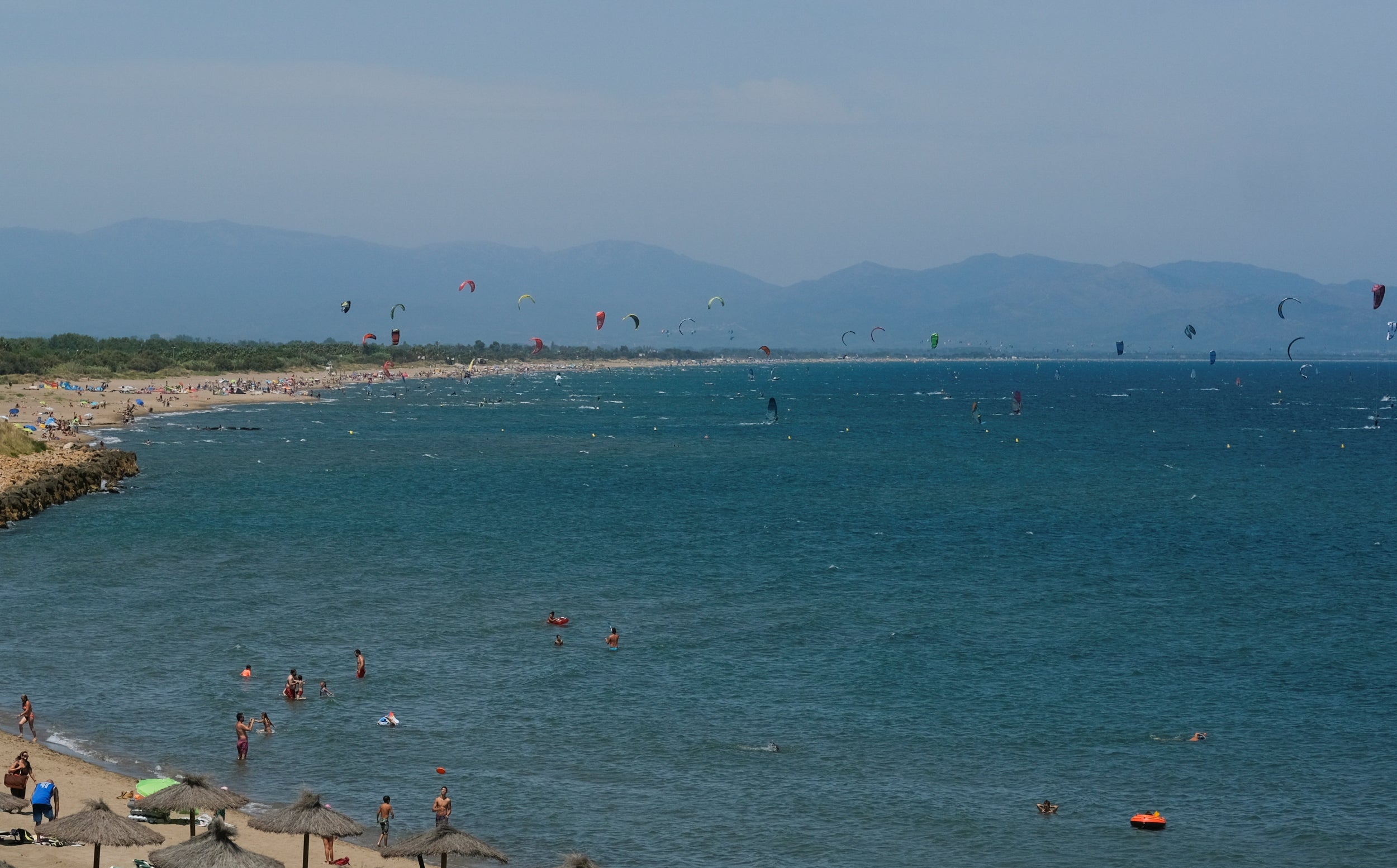Can Spain flatten the curve before its 8 million children return to school?
Health officials maintain that the goal is to get pupils back in classrooms and allow their parents back to work. But even the man in charge of Spain’s Covid-19 response admits ‘things are not going well’, as Graham Keeley reports from the Costa Brava


The queues to get on the beach stretched along the road as temperatures rose to 30C at midday.
None of this seemed to put off the crowd of mostly young sunbathers waiting to find a free spot to brush up on their tan in Llafranch, a Costa Brava resort where the late British writer Tom Sharpe made his home.
As Spaniards have taken to socialising with gusto since the end of lockdown, it is scenes like this which have been blamed for the country having the fastest rising caseload for coronavirus in Europe.
Madrid is desperately battling to flatten the curve of Covid-19 infections with just over a week before the nation’s schools are due to reopen for the first time since March.
Right now it appears to be losing the fight. The country has 145 cases of coronavirus per 100,000 of population, according to the European Centre for Disease Prevention and Control.
By comparison Britain, which faces the same dilemma about when – or if – to allow children to return to school and is second in the table of European countries, has 21.2 cases per 100,000.
Getting Spain’s eight million pupils back into the classroom is seen as crucial to the recovery of the country’s battered economy because it means their parents may start to return to work.
Education experts also stress disadvantaged pupils face a better chance in the classroom than at home trying to do school work on a shared mobile phone with harried parents.
Spain’s health emergency chief Fernando Simon told a news conference this week: “We need to arrive at the start of work and educational activity in September with the lowest level of transmission that we can manage, that is the fundamental target.”
However, as cases continued to rise, he later admitted that “nobody should be in any doubt, things are not going well”.
Angry parents and teachers are furious at the lack of planning by Spain’s left-wing coalition government and regional authorities, which have a large responsibility for education in Spain’s devolved democracy.
Ana Ramirez, who has two daughters at a school in Madrid, told The Independent: “I am worried. I have not heard anything from the school about what they are going to do. I think I am going to keep my children away from school for the first week at least until the situation becomes clearer.”
Parents’ groups have condemned the lack of any planning from education authorities.
“We have the feeling that they are taking us for a ride, that this matter is not being taken seriously nor with rigour,” said Maria Carmen Morillas, from the FAPA Francisco Giner de los Rios parents association in Madrid.
Teaching unions in the capital are planning strikes timed to coincide with the start of the school term in protest over the lack of plans for safety measures.
Isabel Galvin, of the Madrid branch of the Workers’ Commission, one of the largest unions in Spain, said 80 per cent of members had voted in favour of industrial action.
“We want children to return to the classroom but in a situation which is safe,” she told The Independent.
“We think there should be 20 children per class, no more, which means we need more teachers and more cleaners.”
Spanish prime minister Pedro Sanchez and the heads of the country’s 17 regional governments are expected to meet next week to iron out last-minute plans.
Pablo Casado, leader of the opposition conservative People’s Party, has taken advantage of the row to accuse the government of ignoring the nation’s parents.
“Not a single Spanish family knows what will happen to their children when the school year starts,” he said.
“We cannot let a whole generation of children have their education held back because of a lack of planning.”
Catalonia has said face masks will be compulsory and classroom sizes will be smaller while Madrid will unveil its plans next week.
Rafael Bengoa, a former director of the World Health Organisation who was one of the signatories to a recent letter in The Lancet criticising the handling of the pandemic in Spain, said schools may have to be reopened in different ways according to the local levels of infection.
“My sense is that Spain will not reopen its schools in a geographically uniform way. The next two weeks are key and I believe we will see micro-confinements,” he told The Independent.
Join our commenting forum
Join thought-provoking conversations, follow other Independent readers and see their replies
Comments